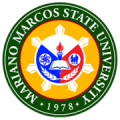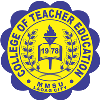
MMSU establishes guidelines for responsible AI use in education
By Niña Christelle Sumintac, StratCom Correspondent
MMSU has recently introduced the General Guidelines on using Artificial Intelligence (AI) in Teaching and Learning through Board Resolution No. 27 series of 2024, tailored for educators and students.
Educators emphasize supporting students’ utilization of AI in learning activities and assessments by discussing its potential advantages, limitations, and ethical considerations. Additionally, AI tools must seamlessly align with learning objectives, curriculum standards, and pedagogical methodologies.
Educators are required to facilitate the development of the 6 Cs (communication, collaboration, creativity, critical thinking, citizenship, and character) with the aid of AI. Notably, course requirements should be at most 20% of AI-generated content, and guidelines regarding penalties for improper use should be explicitly communicated to the students to maintain intellectual honesty.
In parallel, students are required to transparently disclose all AI-generated content in their academic outputs, uphold intellectual integrity, and prevent any instances of plagiarism. Furthermore, students must exhibit ethical conduct in utilizing AI for educational purposes and clearly explain data collection methods when acquiring data for course requirements. Like educators, students must adhere to the stipulation that at most 20% of AI-generated content is permissible in course requirements, including action research, theses, dissertations, unique problems, and capstones.
Upholding ethical standards in the application of AI for educational purposes is of paramount importance. To further the integration of AI in instructional practices, MMSU has embarked on several initiatives. These encompass training programs aimed at enhancing the AI literacy, technical skills, and pedagogical approaches of educators and support staff. Moreover, MMSU will curate a repository of educational resources, including flyers and informative videos advocating ethical AI use. The institution will also take proactive measures to recommend and procure AI tools for faculty and student use. Additionally, specific coordinators will be appointed to oversee AI utilization and contribute to policy-making bodies. Regular training sessions for students on AI tools and digital literacy will also be implemented to ensure preparedness for advancing AI technologies.
The formulation of these guidelines involved the adept contributions of Dr. Ronald Candy Lasaten, curriculum development, and innovative learning director; Dr. Byron Joseph Hallar, distance learning chief; Dr. Wilben Christie Pagtaconan, Information Technology Center director; Dr. James Patrick Acang, data science unit chief; and Dr. Regie Boy Fabro, CTE faculty member.
Dr. Lasaten, the lead proponent, underscored the necessity of these guidelines in light of AI’s potential to elevate the quality of education, redress inclusivity and equity concerns, and revolutionize pedagogical methodologies. “The absence of established guidelines for AI use at MMSU stressed the urgency of formulating explicit policies to capitalize on the technology's advantages while mitigating potential risks, thereby reinforcing intellectual property rights and fostering ethical conduct in academia,” Dr. Lasaten explained.
Approved on July 5, 2024, these guidelines not only ensure openness, fairness, and alignment with educational objectives but also demonstrate MMSU’s commitment to embracing and regulating AI’s role in education.
Gallery

Dear Valued Client,
We will be introducing our newly upgraded website on October 31, 2024 – offering faster access, improved navigation, and enriched content for students, faculty, partners, and stakeholders. Experience how we cultivate minds and transform futures at MMSU.

 CAFSD
CAFSD CASAT
CASAT CAS
CAS CBEA
CBEA CCIS
CCIS COE
COE CHS
CHS CIT
CIT CTE
CTE COM
COM CVM
CVM Graduate School
Graduate School




